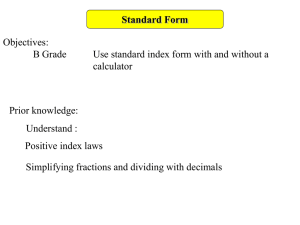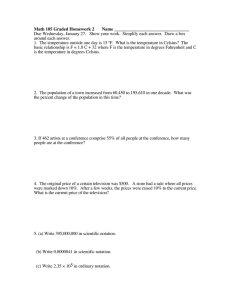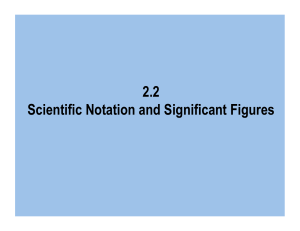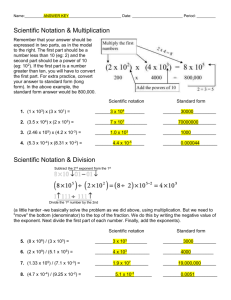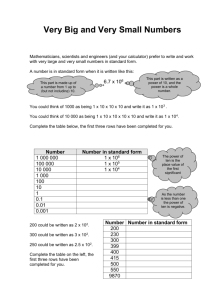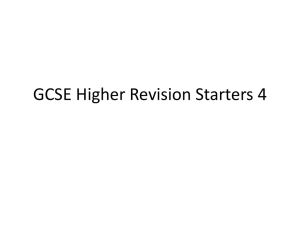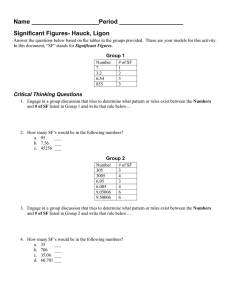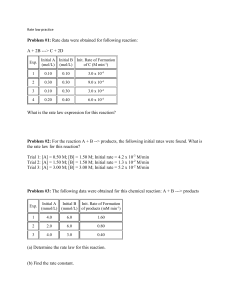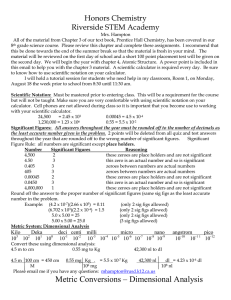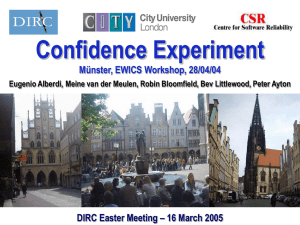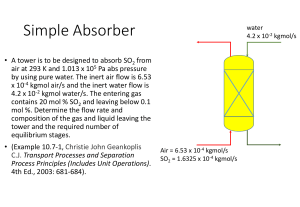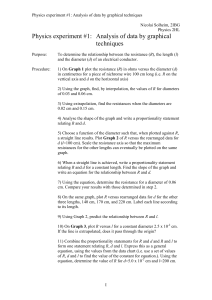Chemistry Practice Problems: Scientific Notation & Conversions
advertisement
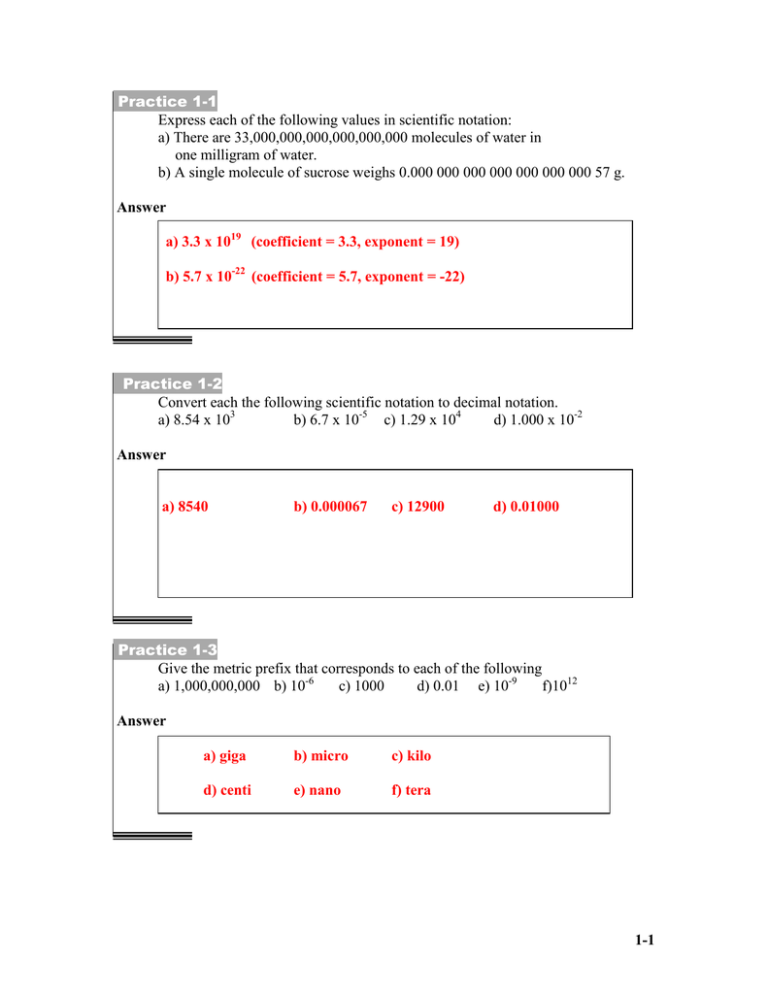
Practice 1-1 Express each of the following values in scientific notation: a) There are 33,000,000,000,000,000,000 molecules of water in one milligram of water. b) A single molecule of sucrose weighs 0.000 000 000 000 000 000 000 57 g. Answer a) 3.3 x 1019 (coefficient = 3.3, exponent = 19) b) 5.7 x 10-22 (coefficient = 5.7, exponent = -22) Practice 1-2 Convert each the following scientific notation to decimal notation. a) 8.54 x 103 b) 6.7 x 10-5 c) 1.29 x 104 d) 1.000 x 10-2 Answer a) 8540 b) 0.000067 c) 12900 d) 0.01000 Practice 1-3 Give the metric prefix that corresponds to each of the following a) 1,000,000,000 b) 10-6 c) 1000 d) 0.01 e) 10-9 f)1012 Answer a) giga b) micro c) kilo d) centi e) nano f) tera 1-1 Practice 1-4 Round off each of the following to three significant figures. a) 9.174 b) 9.175 c) 9.176 d) 5 e) 0.0040 f) 8000 -5 g) 2.4 x 10 h) 670 Answer a) 9.17 b) 9.18 c) 9.18 d) 5.00 e) 0.00400 f) 8.00 x 103 g) 2.40 x 10-5 h) 670. Practice 1-5 Perform each of the following calculations to the correct number of significant figures. a) 33.56 x 1.9483 b) (2.50 x 10-3) x (1.8500 x 105) c) 47.5301 2.30 d) (6.56 x 1010) (7.8 x 109) Answer a) 65.38 b) 4.63 x 102 c) 20.7 d) 8.4 1-2 Practice 1-6 Perform each of the following calculations to the correct number of significant figures: a) 73.498 + 2.2 b) 63.81 + 205.4 c) 191.000 - 188.0 d) 124.08 - 39.1740 e) (6.8 x 10-2) + (2.04 x 10-2) f) (5.77 x 10-4) - (3.6 x 10-4) Answer a) 75.7 b) 269.2 c) 3.0 d) 84.91 e) 8.8 x 10-2 f) 2.2 x 10-4 Practice 1-7 Perform each of the following conversions: a) Convert 14.7 lb to ounces. b) Convert 19.8 lb to kilograms. c) Convert 23 m/sec to mi/hr. Answer a) b) c) 1-3 Practice 1-8 The density of rubbing alcohol is 0.786 g/mL. What volume of rubbing alcohol would you use if you needed 32.0 g? Answer Practice 1-9 A 50.0 mL sample of blood has a mass of 53.2 g. a) Calculate the density of the blood. b) Calculate the specific gravity of the blood. Answer 1-4 Practice 1-10 Complete the following table. Fahrenheit 88F Celsius Kelvin -55C 469K Answer Fahrenheit 88F -67F 385F Celsius 31C -55C 196C Kelvin 304 K 218 K 469 K Practice 1-11 What mass of lead is needed to absorb 348 J of heat if the temp of the sample rises from 35.2°C to 78.0°C? The specific heat of lead is 0.129 J/g·°C. Answer 1-5 Practice 1-12 It takes 87.6 J of heat to raise the temp of 51.0 g of a metal by 3.9°C. Calculate the specific heat of the metal. Answer Practice 1-13 4.00 x 103 J of energy is transferred to 56.0 g of water at 19°C. Calculate the final temperature of water. SH = 4.18 J/g·°C. Answer 1-6
